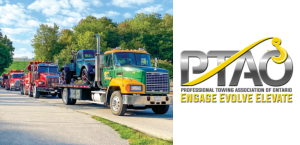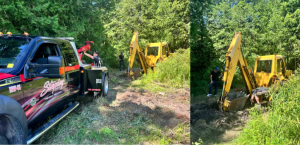Toronto, Ontario — November 19, 2014 — An omnibus bill intended to reduce auto insurance claims costs is currently in the hands of the Ontario government, but the bill has polarized a number of industry stakeholders worried about what it will mean for towing owners and operators.
The Fighting Fraud and Reducing Automobile Insurance Rates Act—Bill 15—passed through its second reading at Queen’s Park in October, and recently was assessed by the Standing Committee on General Government.
Although Bill 15 may still be amended before it’s finally passed into law, if left unchanged the present form of the bill will alter how towing vehicles are defined, recasting tow trucks as “commercial motor vehicles” under the province’s Highway Traffic Act. This change would remove an industry exception to the law, meaning tow truck operators would need to obtain a Commercial Vehicle Operator’s Registration (CVOR) certificate, and could only be on-call to work a set period of the day.
While the bill would work towards addressing safety concerns, it’s felt within the industry that a straight removal of the exemption would negatively affect tow operators’ ability to reach destinations on time, should towers be required to follow provincial commercial service time requirements. There is additional worry that operational costs could increase, while service may decline.
It’s argued that the nature of the towing industry isn’t necessarily a service that falls within set hours, that tow operators need to be ready regardless of whether call volume is high or low, leaving service dependent on demand from customers. Because most calls for service are emergencies, the industry would find it difficult to satisfy the revised service hours requirements and maintain service.
In addition to the proposed changes to service and vehicle designations, Bill 15 will also reduce the duration that a towed vehicle can be stored without having given notice to owners. This would ensure that facilities are unable to charge for storage in situations where the owner may not know where their automobile is being kept. The present period a company can go without providing notice is 60 days, which stands to be reduced under Bill 15.
If passed into law, the province would thirdly set out qualifications and standards of practice for tow truck operators, which would be inclusive of certifications and training requirements for all drivers. This would help combat fraud, but also improve driver safety, training and overall compliance with basic regulations.
The fourth key point of Bill 15 would mandate itemized invoices that would be given to customers before towers are paid, ensure towers’ rates are published and known to customers, and finally that drivers must accept credit cards as a payment option.
The legislature passed a time allocation motion for the bill that required the committee to report Bill 15 to the legislature by Nov. 18—the motion limits third reading debate to two hours.
Bill 15 would also address issues concerning auto insurance dispute resolution, the reduction of prejudgment interest rates for non-pecuniary losses for accident victims and would change how insurance agents and adjusters are disciplined.



















